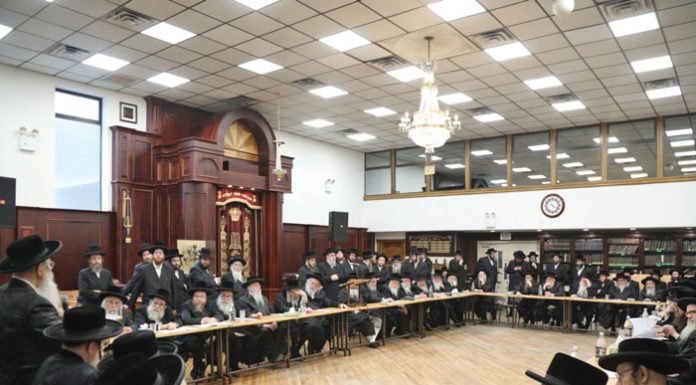My mother says that Joyce “cured” her. I didn’t know that having an open-door and open-heart policy is something that needs a cure or can ever be cured. However, our experience with Joyce did raise a lot of serious questions, such as “How much giving is too much giving?” and “Can you ever truly help someone if that person does not want to be helped?” and “Am I crazy, or is this woman seriously nuts?”
“She was abused, she’s divorced, and she’s sleeping in your room” is the catch-all line my brother coined for the kind of household we grew up in. There was often a stranger in need of a safe place sleeping in our room when we came home from school; a stranger who often became part of the family. As we got married and moved out, this didn’t change; only the faces of the people invited to stay for a while in my mother’s house did.
And so, of course, last summer, when a friend of my sister’s heard about a woman who was coming to New York and needed a place to stay for a while, she thought of my mother.
“She’s coming to New York from Israel for a relative’s funeral,” my sister’s friend explained. “I don’t know her personally, but she was posting on this message board that I’m part of. She said it would just be for a few days, and she would not get in anyone’s way. She sounded nice.”
Joyce burst through the front door with a suitcase and the following sentence: “I am not the kind of person who ever judges anyone.”
She then proceeded to judge everyone. She told my mother that everyone in New York is cold and stuck-up and wouldn’t lift a finger to help anyone else, not realizing the irony of saying this to the woman who was hosting her free of charge. She explained that men are bad, that a lot of women are worse, and that most terrible of all are those who eat carbohydrates or sugar of any kind, especially together in the form of rugelach.
Joyce was a tiny, dizzying, frizzy-black-haired tornado. She did not sit down; she paced around the room when she spoke, and her sentences were wild firecrackers, loud, disjointed, often making no sense at all.
“It was so nice talking with you, but I have to do some paperwork,” my poor mother said to her the first night she arrived, after a couple of hours during which Joyce shouted opinions and wrote down in a notebook anything my mother said that she deemed inspiring.
“No problem!” Joyce said. “You won’t even know I’m here! Just one last question—why do you think the children in Israel are so much better behaved than any child in the rest of the world?”
“Um,” said my mother, who loves my children very much but understandably does not see them as models for being seen and not heard, “I don’t think that’s true.” Because even when you just wanted to smile and disengage from Joyce, there was something about the sureness with which she delivered her baseless opinions that stirred up the need to set her straight, and when that didn’t work, riled up even the calmest of people, such as my mother





















